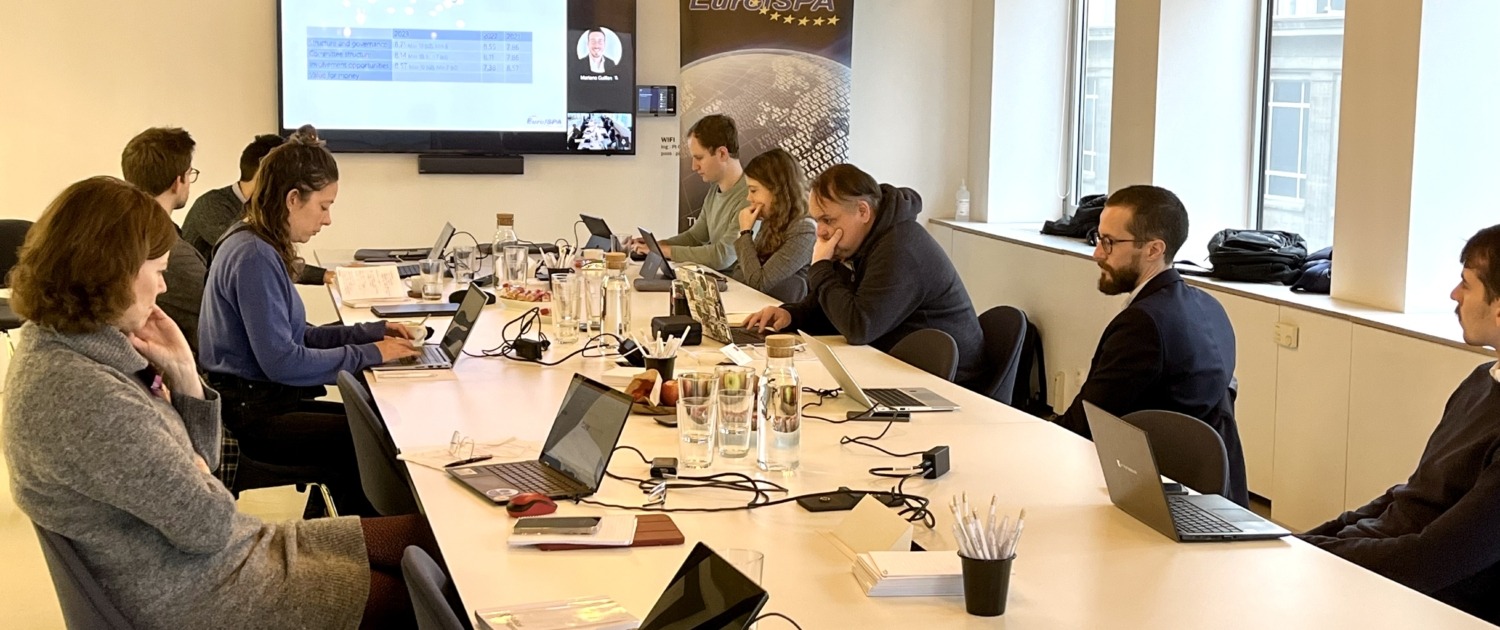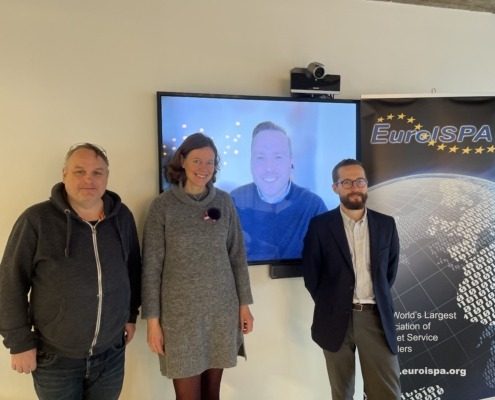EuroISPA General Meeting: 2023 wrap-up and 2024 outlook

Brussels, November 30th-December 1st, 2023
As 2023 comes to an end and we approach 2024, our members gathered in Brussels for the last General Meeting of the year.
The participants came together to reflect on a successful year for the Association and to assess the results of the hard work. Here is a recap of the Association’s output in 2023:
- More than 20 meetings held with policymakers, law enforcement bodies, and other sessions: we held multiple meetings and workshops with the European Commission, the Council, the European Parliament, EuroJUST, Europol, EUIPO and many more on the topics of piracy, e-evidence, Data Retention, CSAM, DSA and more.
- More than 10 policy positions published, among papers, letters, recommendations, consultations and joint industry statements on CSAM, e-evidence, piracy, CRA, AI, Data retention, and more.
The biggest milestone of 2023 has been the publication of the EuroISPA Manifesto for the 2024 European elections, which will continue to be the centre of the Association’s policy work and engagement efforts in 2024.

EuroISPA’s Committees had the chance to present the work done in 2023 and kick-off the discussions for the 2024 focus areas. In particular, members actively engaged in an exchange of views on the role that EuroISPA can take in the debate on Artificial Intelligence, becoming more and more prominent in the EU digital policy environment.
Together, they agreed that EuroISPA will aim to establish a harmonised and globally accepted framework for AI deployment that encourages innovation, upholds ethical standards, and mitigates potential risks and the regulatory burden for Internet Service Providers while looking out for excessive liability for AI-Generated content and respecting copyright laws.
This will be the starting point for EuroISPA’s work on AI in 2024, in addition to the policy work done on other longstanding topics such as data, cybersecurity, online content moderation, and more.
Participants to the General Meeting also had the pleasure of hearing several guest interventions:
- Connectivity Unit of DG CNECT on the Future of Connectivity: Results of the consultations and next steps.
- Cate Nymann, Head of Policy and Membership affairs at the ALDE Party, offering insights and reflections on the party’s plans ahead of the elections.
- Karolina Mojzesowicz, Deputy Head of the data Protection Unit at DG JUST, on the upcoming GDPR review.
Finally, the EuroISPA Board elections were held during the General Meeting: EuroISPA Council members elected Lars Steffen from eco Association of the Internet Industry as Vice-President, and Romain Bonenfant from FFTélécoms as Board Member. You can read the full announcement here.



